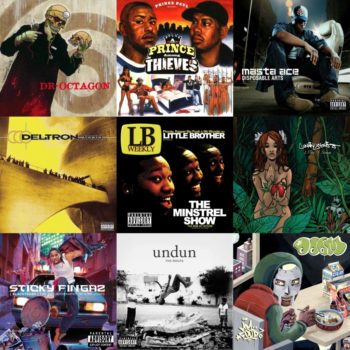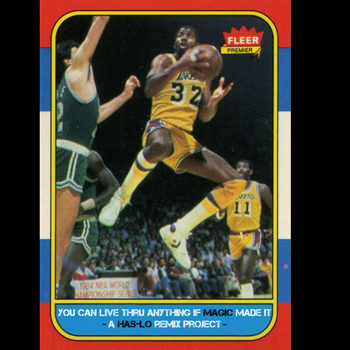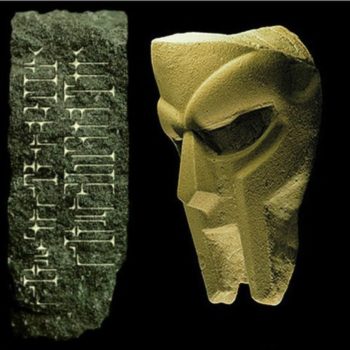2014 saw the release of BADBADNOTGOOD’s III; it also saw the release of Ghostface Killah’s 36 Seasons. At first glance, there aren’t many similarities between the two acts. The former is a Toronto-based jazz trio that made their name performing jazz covers of hip-hop songs. The latter is the famous Staten Island emcee from the Wu-Tang Clan. However, further listening to each of their individual works reveals many parallels between their styles. Both are obsessed with an acoustic instrument based sound that often feels misty, somber, and crouching. What would it sound like if they collaborated? Sour Soul is the answer.
The major reason why this album is considered hip-hop is because of the instrumentation. Unlike their previous album III, BBNG’s compositions on Sour Soul sound like traditional hip-hop beats. Each track follows the tradition that was established by years of sampling and hip-hop production. A solid break-beat is repeated under a groovy bassline, for example, and on top of that lies a playful, catchy melody. After sixteen or thirty-two bars, the form repeats. It’s this kind of composition that shows that the band composed this album in the vein of hip-hop.
Yet, the composition on Sour Soul is far from simple. On tracks like “Ray Gun” and “Tone’s Rap,” the form meanders through many different sections. After exploring the sonic possibilities of the verse-chorus-verse-chorus structure, the band completely changes gears. One track might begin with just the trio of drums, guitar, and bass, but by the end it features lush strings and bright horns. The combination makes the album sound as if it were a movie score, constantly changing. Those familiar with Madlib may be able to hear his possible influence on Sour Soul. You even hear a nice nod to the “super villains” of hip-hop – Madlib and MF DOOM – at the end of “Ray Gun.”
Another large reason why this album is hip-hop (and not jazz) is the presence of Ghostface Killah. His rapping style remains relatively unchanged from his most recent album, 36 Seasons. On Sour Soul, the Wu-Tang Clan rapper spits like he has for the past twenty years. The ferocity in his subject matter is balanced with the smoothness of his delivery. He isn’t changing his cadences or his delivery technique to mach the fluidity of the instruments. Instead, he takes center stage and forces the band to be his accompaniment.
Nevertheless, the jazz sound (and the live band) has a sizeable impact on his flow. With more dynamic song structures, Ghostface Killah is able to expand his verses. The themes that persist in from song to song are much longer than they usually are on his previous works. His verse in “Nuggets of Wisdom” is a good example. When the instruments change and build the tension, he does the same with his verse. The band builds the beat up for what feels like an eternity, and his flow unfurls like an endless scroll. Eventually the band releases the tension, and so does Ghostface Killah. This style gives his career a much-needed breath of fresh air. His delivery can sometimes work itself into a rut, but it doesn’t even come close to doing so on Sour Soul.
This album isn’t without its faults, though. At just under forty minutes, the album runs a little short. The opening track “Mono” sets the tone for the album, but the album only really enters its rhythm on “Six Degrees.” The album maintains its stride for a few songs, but by the time it hits “Ray Gun,” it starts to wind down. Throughout the race, it’s difficult to pinpoint moments of great euphoria. This is especially so for Ghostface Killah; BBNG’s compositions are heavily featured, but there aren’t many memorable verses from Ghostface. By the end of the record, you find yourself longing for more lyrical highlights. Perhaps a longer record (or further collaboration!) would improve the music.
There’s no denying it that Sour Soul is a hip-hop album through and through. Ghostface Killah emcees in the tradition of hip-hop, and BBNG plays in the same suit. The instrumentation is devilishly playful and makes full use of everything in BADBADNOTGOOD’s arsenal, as sultry string sections float over moody bass lines and crisp drum patterns. To counter, Ghostface Killah’s delivery utilizes extended metaphors and changing styles to match the intricate song structures. This partnership elevates both parties, making the sum greater than its individual parts. Together they have made a hip-hop album that may very well be one of the most musical of the year.
Purchase Sour Soul by BADBADNOTGOOD and Ghostface Killah via iTunes | Amazon![]() .
.






